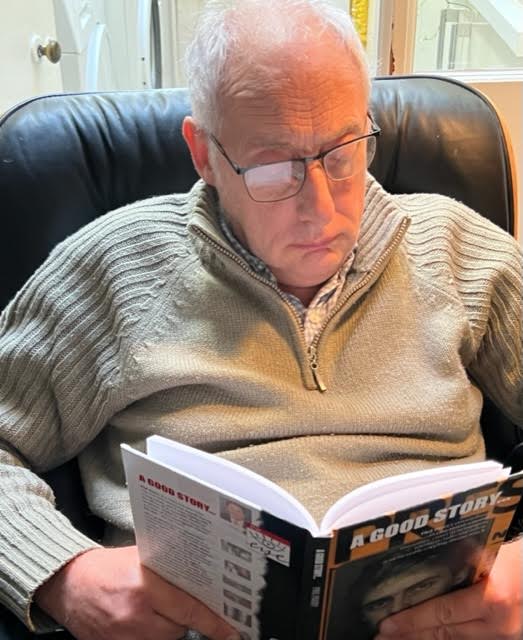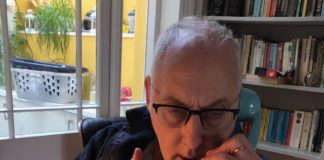- Massaging the truth - 27th February 2026
- ‘It’s the new economy, stupid…’ - 27th February 2026
- Eyes right… - 26th February 2026

During 23 years with the BBC, and in a 42 year journalistic career (when he was trained to use clear and simple language, avoiding jargon), for our Editor, Welshman Phil Parry, exposing criminal activity (when secret recording was often needed) became fundamental, and this is now put centre stage by a new book about how crime has beset the world.
Sometimes it is necessary to fight fire with fire.
This means that when you know bad things are happening, you might need to engage in activities that would seem ‘underhand’ in normal life.
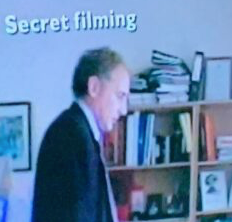 So you may have to engage in secret recordings when the individual would admit to nefarious deeds, or even pose as an unsuspecting victim to find out the truth.
So you may have to engage in secret recordings when the individual would admit to nefarious deeds, or even pose as an unsuspecting victim to find out the truth.
The scale and damage that can be done by criminals is recognised by official UK bodies such as The National Crime Agency (NCA).
In Wales the recognition of harm goes even further.
Crimestoppers proclaims on its website: “Those of us who live and work within the beautiful and diverse landscapes of Wales feel very lucky. Much like the rest of the United Kingdom, our beloved Wales is not immune to the challenges posed by criminal activities. This is why Crimestoppers is working hard to make communities safer. A Welsh Government (WG) policy document explains: “Police, local government and a range of other agencies have come together to tackle the crime and disorder problems that matter to the communities they serve, and the development in partnership working has contributed to a reduction in crime during that time”.
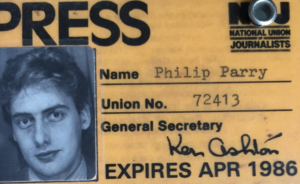 The brazenness of people in the underworld, though, is something to behold for those in the media, and occasionally they might even believe (bizarrely) that what they are doing is perfectly justified.
The brazenness of people in the underworld, though, is something to behold for those in the media, and occasionally they might even believe (bizarrely) that what they are doing is perfectly justified.
I clearly remember that I confronted one fraudster on camera with a copy of his real birth certificate, and he point blank said it wasn’t him.


On another occasion I was told about a woman in Cardiff who was running a crooked events ‘business’, with supposed recommendations on the marketing leaflets from high-profile companies.
We simply rang up all these firms and they said they had never heard of her or the ‘business’, but when I showed her the evidence she stormed out of the television interview.
The spotlight has been thrown on all this by a book today about how criminality distorts legal practices around the world, and grows bigger, arranging itself into enormous operations.
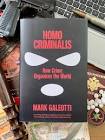 It is called: “Homo Criminalis How Crime Organises the World”, and in it are incredible (as well as disturbing) facts about the extent of criminality.
It is called: “Homo Criminalis How Crime Organises the World”, and in it are incredible (as well as disturbing) facts about the extent of criminality.
For example, a few years ago a Ludwig ‘Tarzan’ Feinberg (a dentist turned mobster) tried to buy a submarine from a dubious Russian general for $5.5 million, and sell it on to a drugs gang for $35 million.
10 years ago the founder of a market on the Dark Web called Ross Ulbricht was jailed, but not before his ‘business’ had facilitated about $1 billion in narcotics deals.
In the 1970s Japanese cities were terrorised by teenage girl gangs known as the Sukeban.

Wearing school uniforms and surgical masks they wielded chains and razor blades as they shoplifted and engaged in more serious criminal activity.
So investigative journalists like me and official agencies do our best, but despite what we do small-time crooks morph into big-time ones, and team up with other gangs becoming HUGE!
I am reminded of the story about the boy who plugs a leaking dyke with his finger to prevent it from bursting and releasing a torrent of water…

The memories of Phil’s extraordinary decades long award-winning career in journalism (including the criminal activity he has exposed), as he was gripped by the rare neurological disabling condition Hereditary Spastic Paraplegia (HSP), have been released in ANOTHER major book ‘A Good Story’. Order it now.
Homo Criminalis How Crime Organises the World is by Mark Galeotti.
Tomorrow – why during that career for Phil identifying the GOOD men or women (whistleblowers) was as important as spotting the bad apples, but now comes news of how this may be changing.










